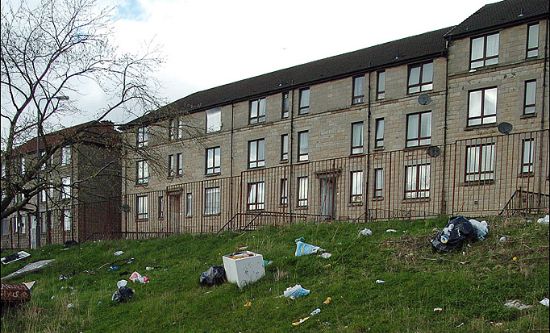
On 30 September 2021 the British government’s national furlough scheme ends and a deadline of 6 October has been set for the removal of the £20 weekly uplift to Universal Credit (UC), with claimants set to lose up to £1,040 a year. Latest figures from HMRC and the DWP, to the end of July, show the number of people on furlough in Scotland fell from 143,000 on 30 June 2021 to 116,500 as the economy continued to reopen while the number of people on UC in Scotland, at around 480,000 people, has remained relatively stable since July 2020 signalling a growing trend of in-work poverty. Older workers who cannot afford to retire face a double whammy as they are currently overrepresented in the furlough figures and are most likely to struggle to find new employment if they are made redundant. Young people across Britain are also being hit hard: the Resolution Foundation has reported that the number of 16-24-year-olds receiving benefits increased by two-thirds during the pandemic, raising the proportion from 9% to 15%, which is proportionately the largest increase for any age group. 5,000 more young people are currently on UC in Glasgow compared to before the pandemic.
Women are suffering a return to the pre-pandemic norm in terms of jobs and wages, illustrated by the widening of the gender gap of UC claimants in Scotland; during the first lockdown in July 2020 there were 3,500 more men on UC than women but now there are 17,500 more women on UC than men. Meanwhile if the High Court turns down the DWP’s appeal in October, up to two million disabled claimants across Britain, on so-called legacy benefits like ESA and JSA, who were denied the £20 uplift could receive backdated payments of £1,500. The court action to challenge this discrimination by benefit status was brought by two disabled campaigners. These actions alongside street-based mobilisation are more urgent than ever.
While the rich and powerful are shielded from increased taxes, there is little protection from the social and economic violence facing the working class and poor. Proposals for a millionaire’s tax from the Scottish Greens, who are now coalition partners in government with the SNP, remain just that, while the wealthiest 10% of Scots hold almost half of the total wealth of the country. During the pandemic the richest of Scotland’s ten billionaires, Danish retailer Anders Povlsen, increased his wealth by £1.27bn to £6bn. Down at the bottom, pounds and pennies are hard to come by. In February Scotland’s Social Security Agency, which manages recently devolved welfare powers, introduced a weekly £10 child payment for families with children under 6 years old as an anti-poverty initiative; this is being wiped out by the cut to UC and the rising costs of living. Campaigners have called on the Scottish government to double this payment, but even this is a drop in the ocean when compared to the attack on living standards. Debts accumulated during repeated lockdowns, which hit the poorest hardest, have to be paid back and October will see energy prices rise for a second time this year. The winter choice of heating or eating faces those unable to pay the additional £20 per month costs.
Using the Scottish government’s latest figures and forecasts, the Child Poverty Action Group states that more than one in four (260,000) of Scotland’s children are officially recognised as living in poverty, that this figure is ‘likely to increase’ in the coming years ‘in the absence of significant policy change’, and that 68% of children living in poverty in Scotland live in households where someone works.
The latest paper by researchers at Glasgow University ‘Covid-19 Crisis and Universal Credit in Glasgow: September 2021’ notes a ‘new normal’ where high numbers of people are stuck on UC, on very low incomes, unable to find work which pays them well enough to escape it. UC represents a state subsidy to employers who can continue paying starvation wages while the government administers a punitive and minimal welfare regime designed to force people to work for them or starve. In Glasgow, which has the highest levels of poverty of all the local authorities in Scotland, with 28% of children in low-income families, 72,729 people (54,527 households) are on UC, which represents 16% of the working age population in the local authority, 19,359 of these households include children. Between 1 April 2020 – 31 March 2021, 221,554 emergency food parcels were given out by the Trussell Trust across Scotland, of which 77,123 went to children.
The Glasgow University researchers call for ‘removing zero-hour contracts and false self-employment practices, paying the living wage, and closing the gender pay gap (especially for “essential” sectors like the care sector)’ and they call for greater public and third sector/charitable support to cushion the impact of an income crisis which is deepening. The only way these demands can be met is through a massive struggle led by the working class.
Charities, trade unions and politicians have offered fine words, with the Scottish government adding its name to a letter of protest from devolved governments to British Work and Pensions Secretary Therese Coffey at the end of August, but their pleas for an extension to furlough and for the £20 uplift to be made permanent and extended to legacy benefits have simply been ignored or dismissed. They have failed to offer up any meaningful resistance. The SNP’s ‘day of action’ against the cuts consisted of two MPs helping at a foodbank, with big trade unions, like Unite the Union, limiting their solidarity to beach art! There has been no attempt to mobilise people politically on the streets against this assault on living standards. The working class and oppressed will have to take this fight up themselves.
Dominic Mulgrew
Fight Racism! Fight Imperialism! No 284, October/November 2021




